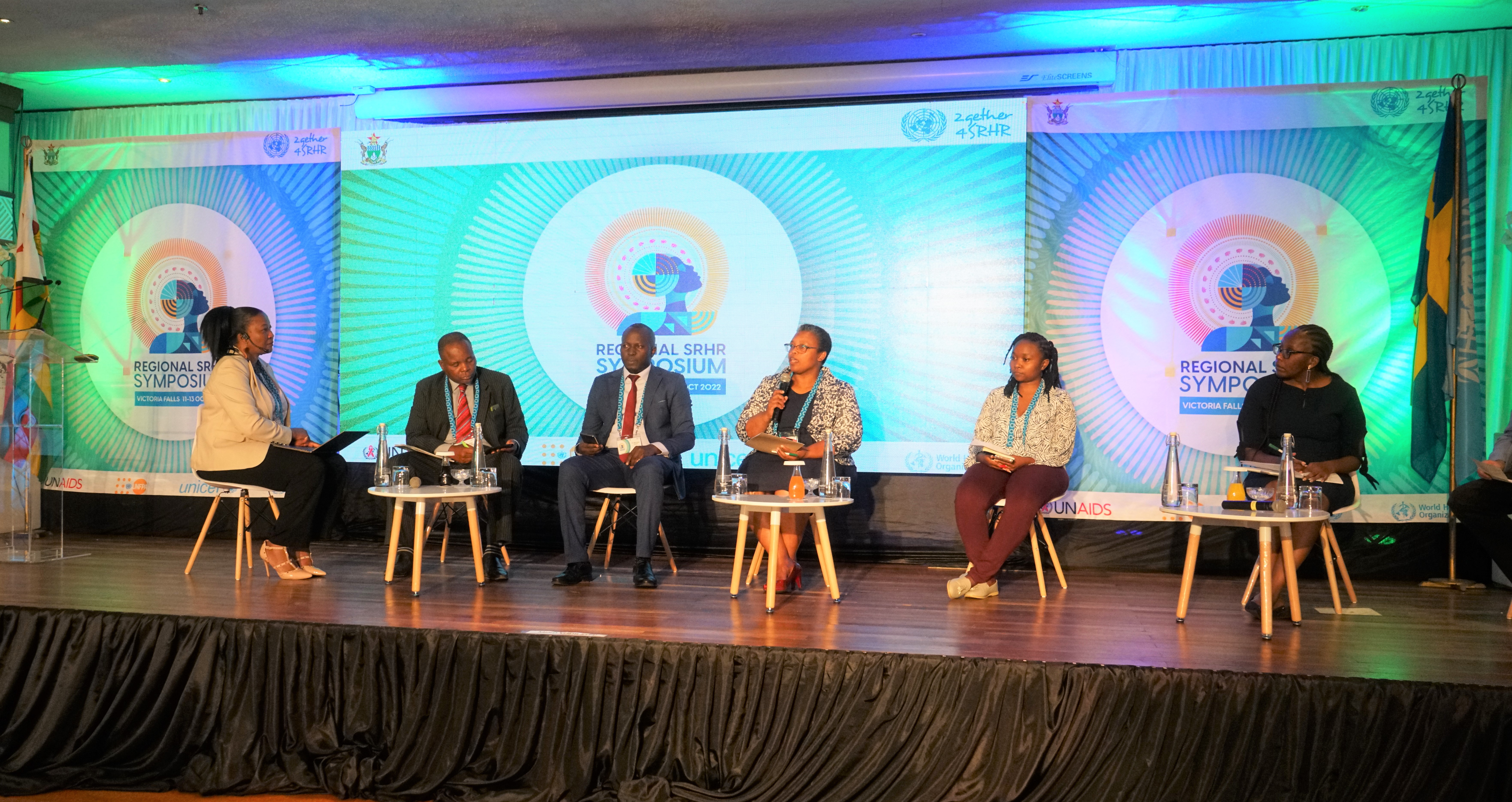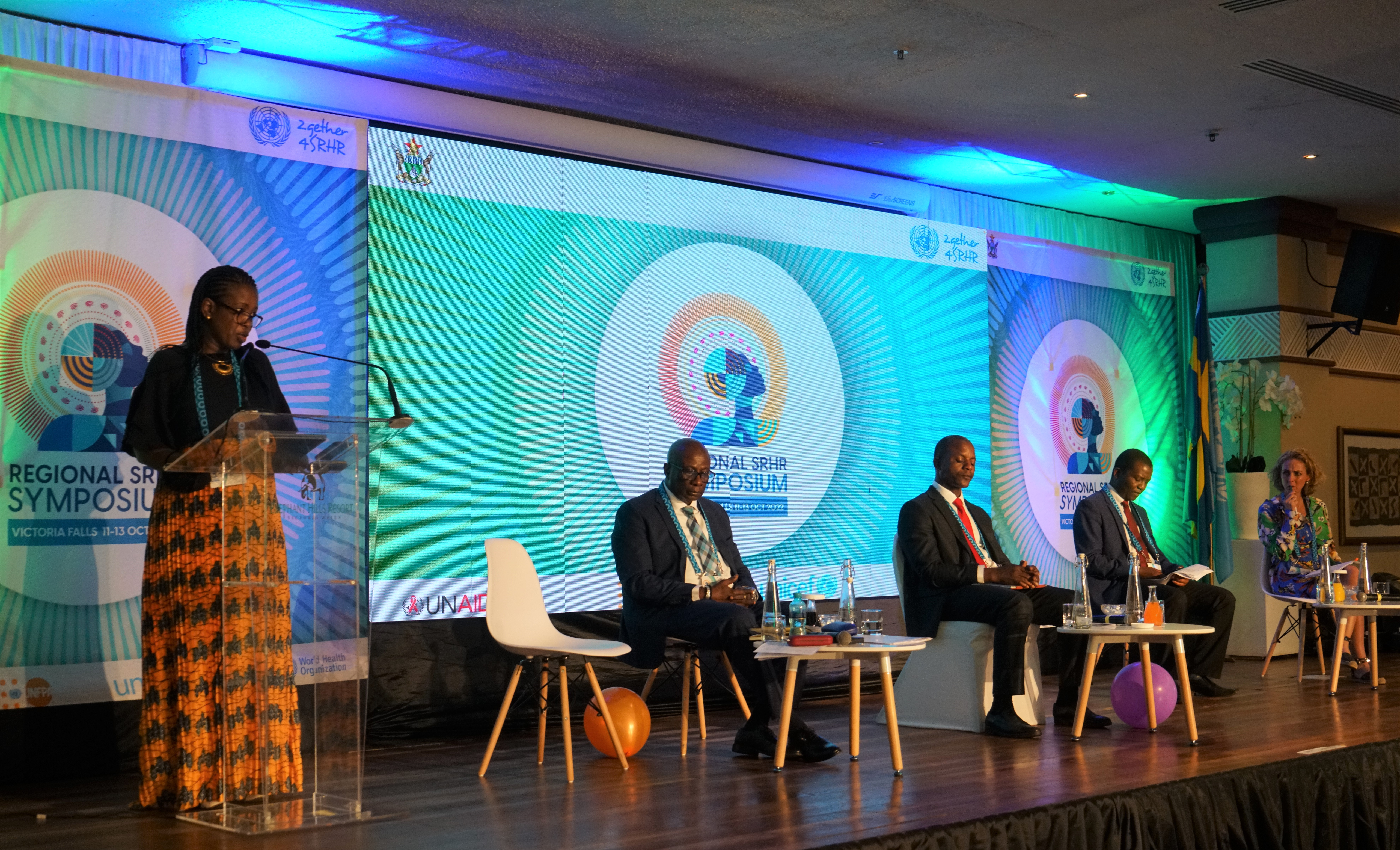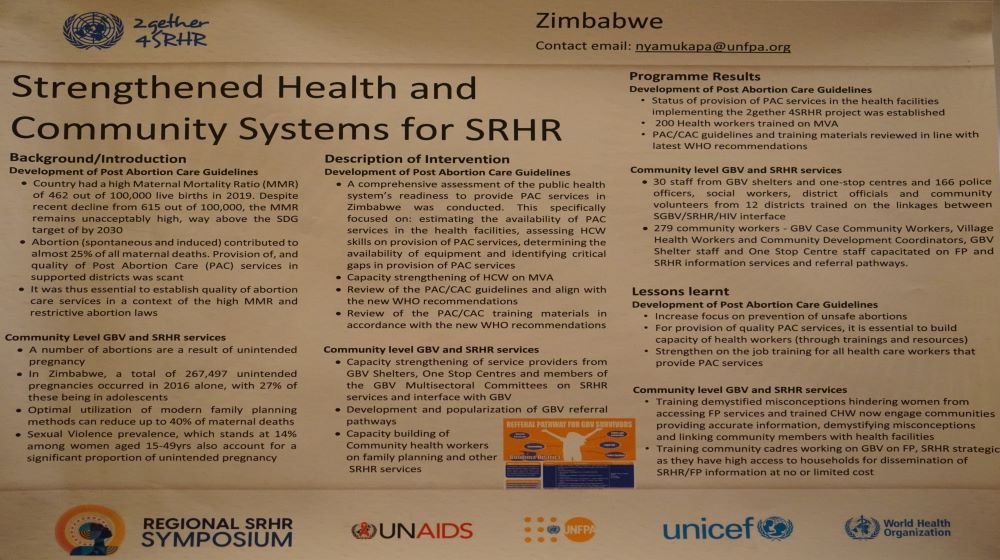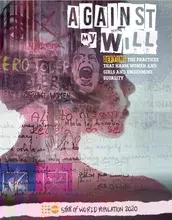Victoria Falls – Zimbabwe hosted the regional 2Gether4SRHR Knowledge Sharing Symposium in Victoria Falls from 11-13 October where over 20 countries from Eastern and Southern Africa met in person and online to reflect on progress made in the region in advancing SRHR.
The 2gether4SRHR programme is funded by the government of Sweden and combines the unique strengths and contributions of four United Nations agencies – the Joint Programme on HIV and AIDS (UNAIDS), UN Children’s Fund (UNICEF), UN Population Fund (UNFPA), and the World Health Organization (WHO) - to support countries in the region towards improving the SRHR of all people fostering the delivering as one UN agenda.
The 2gether 4SRHR programme aimed to improve the SRHR of all people in the ESA region, particularly adolescent girls, young people and key populations through integrating SRHR/HIV and Sexual Gender Based Violence (SGBV) service provision.

Minister of Health and Child Care and Vice President Constantino Chiwenga expressed gratitude to the Government of Sweden for providing financial support towards the SRHR programme.
“Your steadfast support for sexual and reproductive health and rights in Zimbabwe and the region is appreciated. In Zimbabwe more than $10 million United States Dollars from 2018 to date has been invested in the programme,” said Vice President Chiwenga in a speech read on his behalf by the Chief Director Public Health in the Ministry of Health and Child Care, Dr Munyaradzi Dobbie. “Your support has resulted in improved access to services. Most crucially was the flexibility that the funding came with, which made it possible for the government to respond to some unanticipated challenges such as cyclone Idai and the COVID-19 pandemic.”
The symposium provided a platform to share experiences, lessons learnt and good practices on delivering health and Gender Based Violence services for women and young people for possible replication. One of the key take-aways from the symposium is that while we have seen significant progress in strengthening SRHR outcomes in our region, girls, young women and key populations remain vulnerable to child marriage, teenage pregnancy, increased risk of HIV and STI infections, and violence as well as stigma and discrimination. There is therefore need to be decisive and united with programming that is responsive to the needs of the most vulnerable in our communities.
The Regional Learning symposium brought together representatives from over 20 ESA countries, stakeholders from Regional Economic Communities (RECs) and civil society to share knowledge and lessons learnt that can be amplified within and beyond East and Southern Africa.

Head of the Regional SRHR Team of Sweden Elizabeth Harleman said Sweden has a “long and proud history of standing alongside with our partner countries in advancing common interests in support of health equity and social justice” and is an “avid supporter of multilateral cooperation”.
“We see integration and regional collaboration as integral to realising a safe and inclusive world that leaves no one behind,” said Harleman. “Sexual Reproductive Health remains a priority for Sweden development cooperation. In 2021, 12.7% of Swedish Official Development Assistance (ODA) was spent on health. Half of this was allocated to SRHR including funding for HIV. We know tremendous progress has been made in eliminating mother to child, transmission of HIV, reduction of AIDS related deaths and new HIV infections across the region as well as reduction of maternal mortality.”
The 2gether 4SRHR programme sought to among other things support countries in the ESA region to create an enabling legal and policy environment by 2021 that empowers all people, but particularly adolescent girls, young people and key populations to exercise their SRH rights and access quality integrated SRHR/HIV and SGBV services. Countries were supported to scale up the provision of client centred quality assured integrated and sustainable SRHR/HIV and SGBV services which meets the needs of all people, in particular adolescent girls, young people and key populations.

Speaking at the symposium UNFPA Deputy Regional Director, Ms Chinwe Ogbonna said the symposium should map a forward in as far as future-proofing SRHR programing against shocks such as natural disasters and health emergencies such as COVID-19.
“We are here to take stock, we are here to learn and more importantly from this regional flagship program, we now know that there are lots of shocks, there are crises and there is conflict in our region and it very critical for us to look forward and future-proof our programing,” said Ogbonna.
UN Resident and Humanitarian Coordinator for Zimbabwe, Mr Edward Kallon expressed his appreciation to the Government of Sweden for its willingness to support the 2Gether4SRHR programme adapt to unforeseen challenges that the country faced during the funding cycle such as cyclone idai and Covid-19.
“Funding from 2Gether4SRHR enabled agility in responding to these public health emergencies through strengthening of community systems that supported the most vulnerable members of society, and the health system through emergency procurement of equipment and supplies – demonstrating the humanitarian-development-peace nexus,” Mr Kallon said.
By Bertha Shoko



